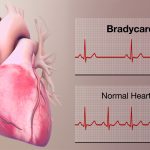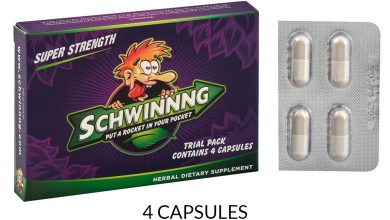What Drugs Cause Shortness of Breath?

Few sensations are as frightening as not being able to get enough air. Shortness of breath known medically as dyspnea is often described as an intense tightening in the chest, air hunger, difficulty breathing, breathlessness, or a feeling of suffocation.
When you’re short of breath, you might feel like you can’t get enough air into your lungs — and you can’t do it quickly enough.
It may seem as though you’re running short on oxygen. It may be more difficult to inhale and exhale. Sometimes you might be compelled to draw a breath before you’ve even finished the last exhale.
Symptoms that appear with shortness of breath include:
• a tight sensation in your chest
• feeling like you need to breathe more or more quickly
• feeling like your body can’t get enough oxygen quickly enough
You might notice yourself becoming increasingly short of breath over a long period of time, or it could happen out of the blue.
What medications cause shortness of breath?
Medications that can cause shortness of breath include:
ACE inhibitors: ACE inhibitors are one class of antihypertensives. ACE stands for angiotensin-converting enzyme. These medications lower blood pressure by encouraging the blood vessels to relax and open. ACE inhibitor like Lisinopril (Prinivil, Zestril) can cause shortness of breath. Examples of other ACE inhibitors include enalapril (Vasotec), and benazepril (Lotensin).
NSAIDs: Non-steroidal anti-inflammatory drugs (NSAIDs) are medicines that are widely used to relieve pain, reduce inflammation, and bring down a high temperature. They’re often used to relieve symptoms of headaches, painful periods, sprains and strains, colds and flu, arthritis, and other causes of long-term pain. These drugs can cause symptoms such as chest pain, shortness of breath or trouble breathing, weakness in one part or side of their body, or slurred speech. Ibuprofen for example can also worsen asthma symptoms by causing the airways to narrow in a condition known as bronchospasm.
Anticonvulsants: Anticonvulsants are a diverse group of pharmacological agents used in the treatment of epileptic seizures. Anticonvulsants are also increasingly being used in the treatment of bipolar disorder and borderline personality disorder, since many seem to act as mood stabilizers, and for the treatment of neuropathic pain. Anticonvulsant like gabapentin can cause breathing problems, which if severe may need emergency and intensive care.
Beta blockers: Cause the heart to slow down and so some of their side effects can be traced to that mechanism of action. Dizziness, weakness, fatigue, and fainting are possible. Beta-blockers also affect the respiratory system, so other side effects include shortness of breath, difficulty breathing, and chest pain. Example of this class of medication include: Atenolol (Tenormin), Bisoprolol (Zebeta), Metoprolol (Lopressor, Toprol XL), Nadolol (Corgard), Nebivolol (Bystolic) and Propranolol (Inderal, InnoPran XL).
Calcium channel Blockers: Calcium channel blockers, calcium channel antagonists or calcium antagonists are a group of medications that disrupt the movement of calcium through calcium channels. Calcium channel blockers lower your blood pressure by preventing calcium from entering the cells of your heart and arteries. Calcium causes the heart and arteries to contract more strongly. By blocking calcium, calcium channel blockers allow blood vessels to relax and open. However, Shortness of breath, dizziness, fast or irregular heartbeat, flushing, and wheezing have also been reported among users of this class of medication. Examples of calcium channel blockers include Amlodipine (Norvasc), Diltiazem (Cardizem, Tiazac, others), Felodipine, Nifedipine (Adalat CC, Procardia), Nisoldipine (Sular) and Verapamil (Calan, Verelan).
Cholinergics: Cholinergic medications are a category of pharmaceutical agents that act upon the neurotransmitter acetylcholine, the primary neurotransmitter within the parasympathetic nervous system (PNS). These medicines may cause paradoxical bronchospasm, which means your breathing or wheezing will get worse. This may be life-threatening.
Antibiotics: Antibiotics are medicines that fight certain infections and can save lives when used properly. They either stop bacteria from reproducing or destroy them. Antibiotic allergies can cause severe allergic reactions, called anaphylaxis. This is a life-threatening medical emergency that requires immediate medical attention. Anaphylactic reactions due to antibiotics may include Shortness of breath.
Antifungals: An antifungal medication, also known as an antimycotic medication, is a pharmaceutical fungicide or fungistatic used to treat and prevent mycosis such as athlete’s foot, ringworm, candidiasis (thrush), serious systemic infections such as cryptococcal meningitis, and others. Anti-fungal medication like fluconazole can cause allergic reactions which can make breathing difficult.
Antiretrovirals: Antiretroviral therapy reduces the amount of HIV in the body. When a person takes them consistently, antiretroviral drugs are very effective at limiting the impact of the virus. Today, more than 40 antiretroviral drugs are approved to treat HIV. However, some of them can cause Shortness of breath.
Digoxin: Digoxin is a type of medicine called a cardiac glycoside. It’s used to control some heart problems, such as irregular heartbeats (arrhythmias) including atrial fibrillation. It can also help to manage the symptoms of heart failure, usually with other medicines. If you have too much digoxin in your blood, it can lead to fast heart rate (palpitations), shortness of breath, dizziness or lightheadedness, and sweating.
Interferon, and chemotherapy agents: Interferons are man-made versions of proteins your body makes. These drugs work with your immune system to help it find and attack viruses and cancer. They can stop viruses and cancer cells from growing and spreading, and prevent other cells from getting infected. A common side effect of interferon is breathlessness and pale skin.
Illegal Drugs That Cause Shortness of Breath
Methamphetamine (Meth): Methamphetamine, a highly addictive stimulant, wreaks havoc on the central nervous system. Its abuse can lead to an accelerated heart rate, increased blood pressure, and constriction of blood vessels. These effects put significant strain on the respiratory system, potentially leading to shortness of breath and other respiratory issues.
Cocaine: Cocaine is a powerful stimulant that can cause sudden spikes in heart rate and blood pressure. When these physiological changes occur, the heart demands more oxygen, which can result in reduced oxygen levels in the bloodstream, leading to shortness of breath and potentially respiratory distress.
Heroin: Heroin is an opioid drug that depresses the central nervous system, slowing down vital functions, including breathing. Overdosing on heroin can cause respiratory suppression, leading to shallow breathing or even complete respiratory failure, which is life-threatening.
Synthetic Cannabinoids (Spice, K2): Synthetic cannabinoids, often sold as “Spice” or “K2,” are human-made compounds designed to mimic the effects of marijuana. However, they can be far more potent and unpredictable. The use of synthetic cannabinoids has been linked to respiratory issues, including shortness of breath, as well as other severe health complications.
Inhalants: Inhalants are a diverse group of chemicals that people typically inhale to achieve mind-altering effects. They can include household products like paint thinners, aerosols, and glue. Inhalants can cause damage to the respiratory system, leading to breathing difficulties and other health problems.
MDMA (Ecstasy): MDMA, commonly known as ecstasy, is a stimulant with hallucinogenic properties. It can increase heart rate and body temperature, potentially causing shortness of breath, especially when used in high doses or combined with physical activity in crowded and hot environments like parties or raves.





